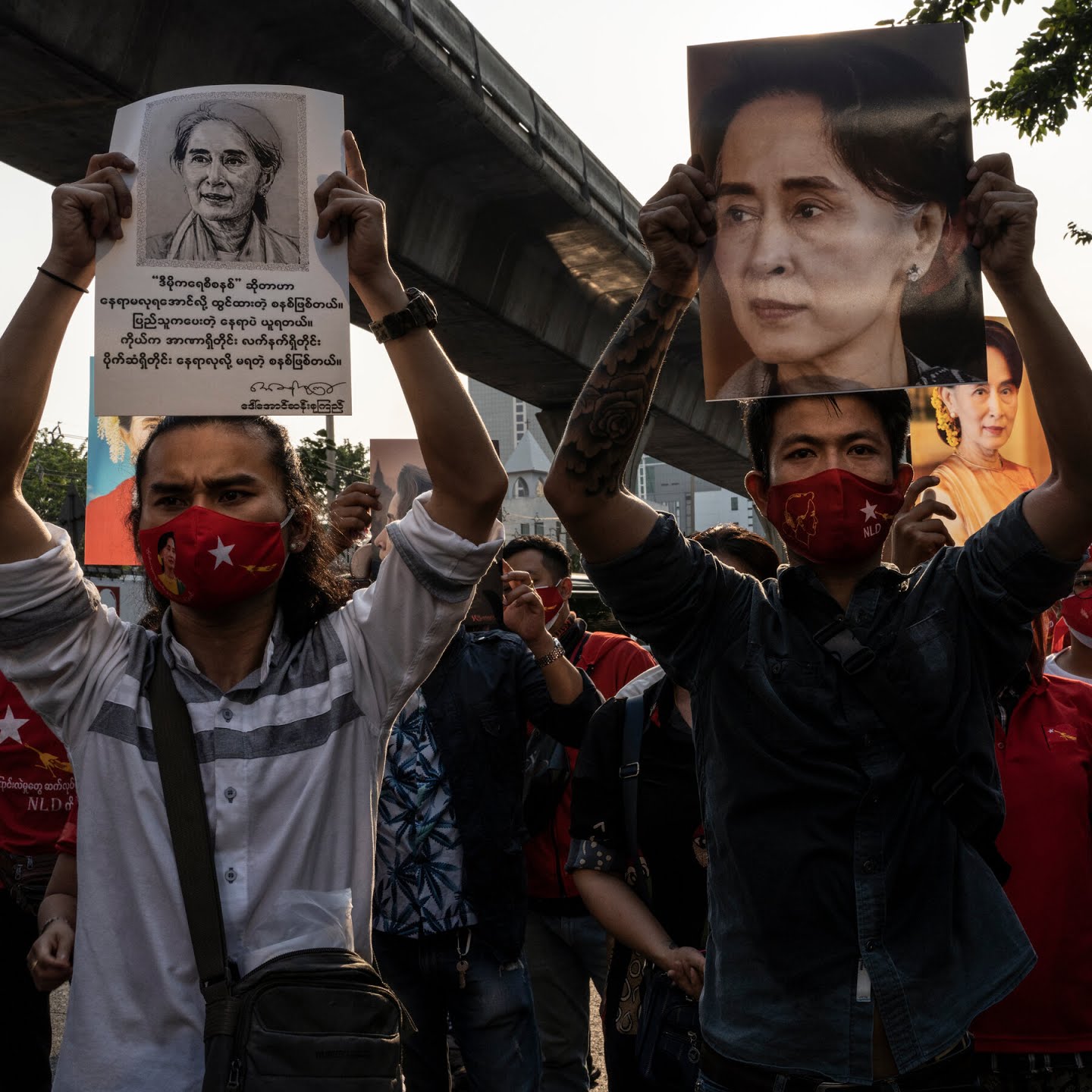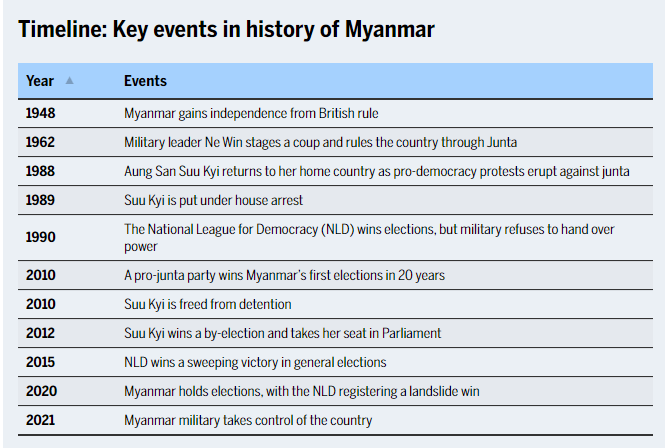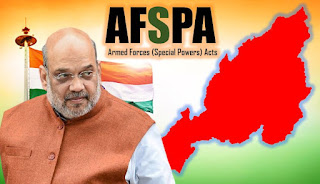Myanamar's Coup de'etat :by danish farooq
The Myanmar military has grabbed power in a coup for the third time in the nation’s history since its independence (1948).
- However, the military officials, in their defence, denied it as a coup and claimed the fraud as “obstruction in the path to democracy”.
- State of emergency has been declared, transferring all powers to Commander-in-Chief Min Aung Hlaing.
The Torturous Politics of Myanmar
- Double Standards of the Junta: The Constitution of Myanmar was drafted in 2008 by the military with the intent to remain in power behind a civilian party.
- In 2015, the Union Solidarity and Development Party (USDP) lost the election which disappointed the military, and was concerned with the new democratic Myanmar that could emerge with the victory of the National League for Democracy (NLD).
- Hostility Towards the Rohingyas: The 2020 elections were held after the Army launched a brutal crackdown on Rohingya in Rakhine State in the name of fighting terrorism, which forced over 700,000 Rohingya Muslims to flee Myanmar to neighbouring countries, mainly Bangladesh.
- Null Foreign Intervention: Myanmar has always preferred solving its internal conflicts by itself letting negligible interference from any Foreign or International Power.
- Many international mechanisms comprising Western and Asian countries that were formed to coordinate strategies on Myanmar were disbanded after the 2015 election.
- Divided Myanmarese Communities: The military understands the people’s psyche well.
- The divide between the Burmans, the majority group, and the ethnic minorities remains wide. The latter are generally opposed to a strong Central government.
- In the recent military coup, the Burmans are supportive of Aung San Suu Kyi but it will be true only up to a point.
- They are largely Buddhists and peace-loving. Hence, they might accept the grabbing of power from elected representatives by the army.
Gist of the Issue
- The November 2020 election of Myanmar resulted in a landslide victory for the National League for Democracy (NLD), which won over 82% of parliamentary seats at the union, regional and state levels
- The army-backed Union Solidarity and Development Party (USDP) claimed the elections as a widespread fraud.
- Without offering any concrete evidence, the military has overthrown the winning party and has detained the political leader including Myanmar’s de facto head Aung San Suu Kyi.
- The activists used social media to oppose the military coup and organise protests.
- Myanmar's junta blocked Facebook and WhatsApp in the name of ensuring stability even as street protests were reported from some cities.
Global Responses
- The UN Secretary-General has vowed to mobilise the international community to put enough pressure on Myanmar to ensure that the military coup in the country "fails".
- China and Russia have taken a non-committal approach to the coup.
- ASEAN made a muted call for "dialogue, reconciliation and return to normalcy while Japan has called it a "coup"
- The Western countries including Australia and the US have issued strong statements with threats of sanctions.
- The US President has referred to the action as a coup and has called on the military "to relinquish seized power”, free all officials and advocates detained, lift the restrictions on telecommunications and refrain from violence.
India as a Stakeholder
India’s Stand
- India is engaged on the Myanmar issue as a member of the UN Security Council.
- Soon after the coup, India had expressed concern and said the rule of law and democratic process must be upheld.
- Though India has expressed deep concern over recent developments in Myanmar, cutting off from the Myanmar military is not a viable option as India has significant economic and strategic interests in Myanmar and its neighbourhood.
- In a country where military leadership has scripted the meaning of democracy, tensions are most likely to prevail.
- In such cases, domestic forces and geopolitics often fail to deter its actions and impulses to rule.
- It is likely for India to feel concerned when democracy in a country is threatened.
- But the country must be committed to its policy of non-interference in another state’s internal affairs.




Comments
Post a Comment